Failure to inform patients about their medical condition, treatment and potential outcomes is medical negligence. To not fully tell a patient of all their options and consequences is failure to inform, and you could have a medical negligence claim for compensation.
A medical professional should inform you of how a procedure may go, your options with treatment types and choices regarding medication. A fully informed patient can decide what is best for them, and failure to inform could be medical negligence.
You may suffer months or years of unnecessary pain, anguish, and discomfort due to medical negligence, and you might be able to claim compensation from those responsible.
A No Win No Fee medical negligence solicitor can make your claim for failure to inform you fully and get you the compensation you deserve.
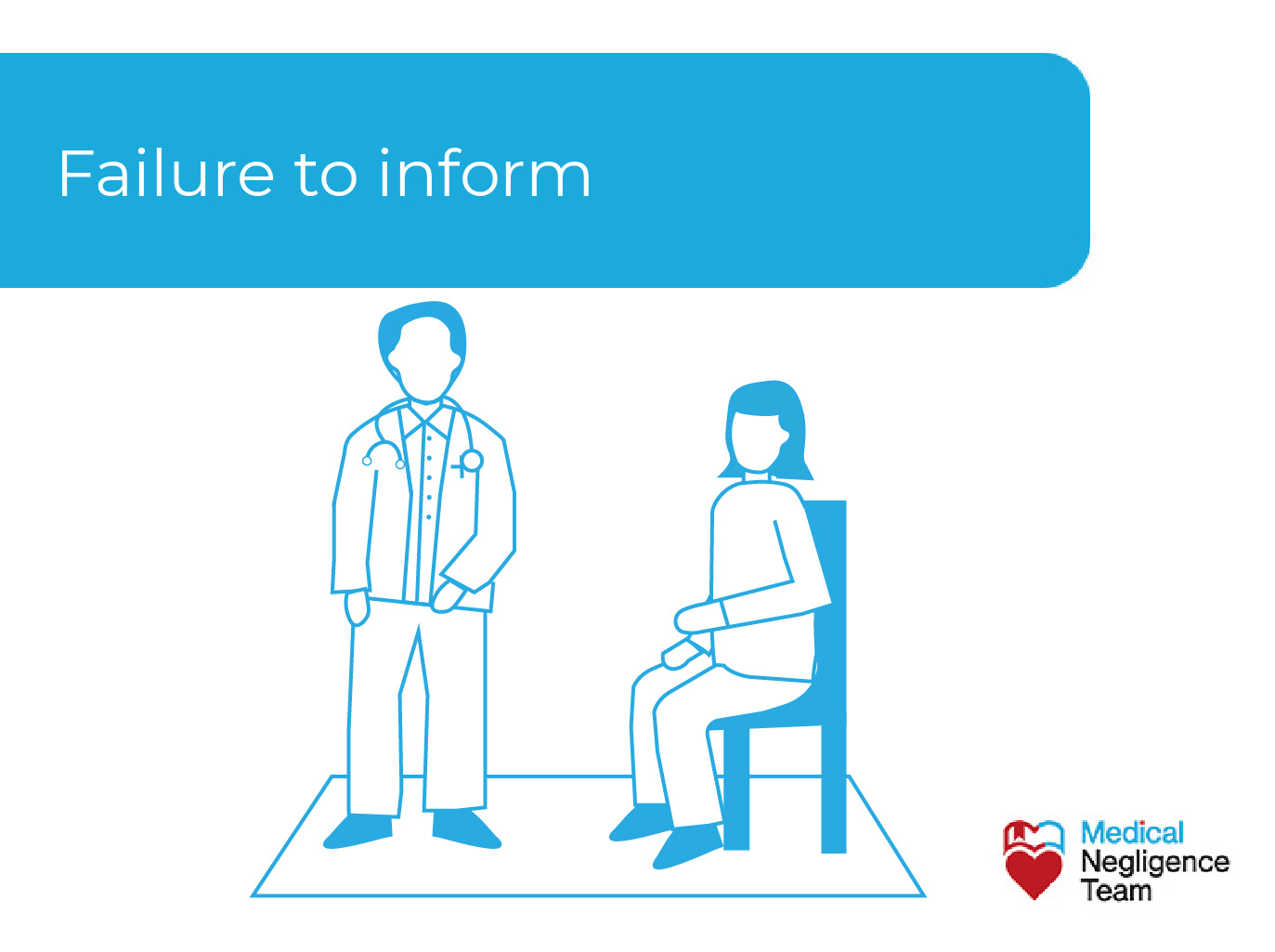
Table of Content
What is failure to inform?
Failure to inform is when your doctor does not fully tell you all options regarding your treatment. It is medical negligence to not inform a patient about their proposed treatment, and you could have a claim for compensation if it happens to you.
Failure to inform could be when the doctor does not tell you of a treatment alternative to surgery. If a doctor recommends bed rest when a simple piece of surgery is an option, it could also be failure to inform medical negligence.
Medical negligence is medical care below that any other medical professional acting at an acceptable level would provide. In a failure to inform case of medical negligence, your doctor has not provided you with an acceptable level of medical care.
Your No Win No Fee medical negligence solicitor can look at your case and see if you have a valid failure to inform claim for compensation.
Common claims for failure to inform medical negligence
Common claims for failure to inform medical negligence range from not telling a patient of options with medications to alternatives to surgery and of any other treatments available.
Failure to inform medical negligence could result in you not taking a more suitable option for treating your condition and may cause trauma in what is already a difficult time.
Common claims for failure to inform medical negligence include:
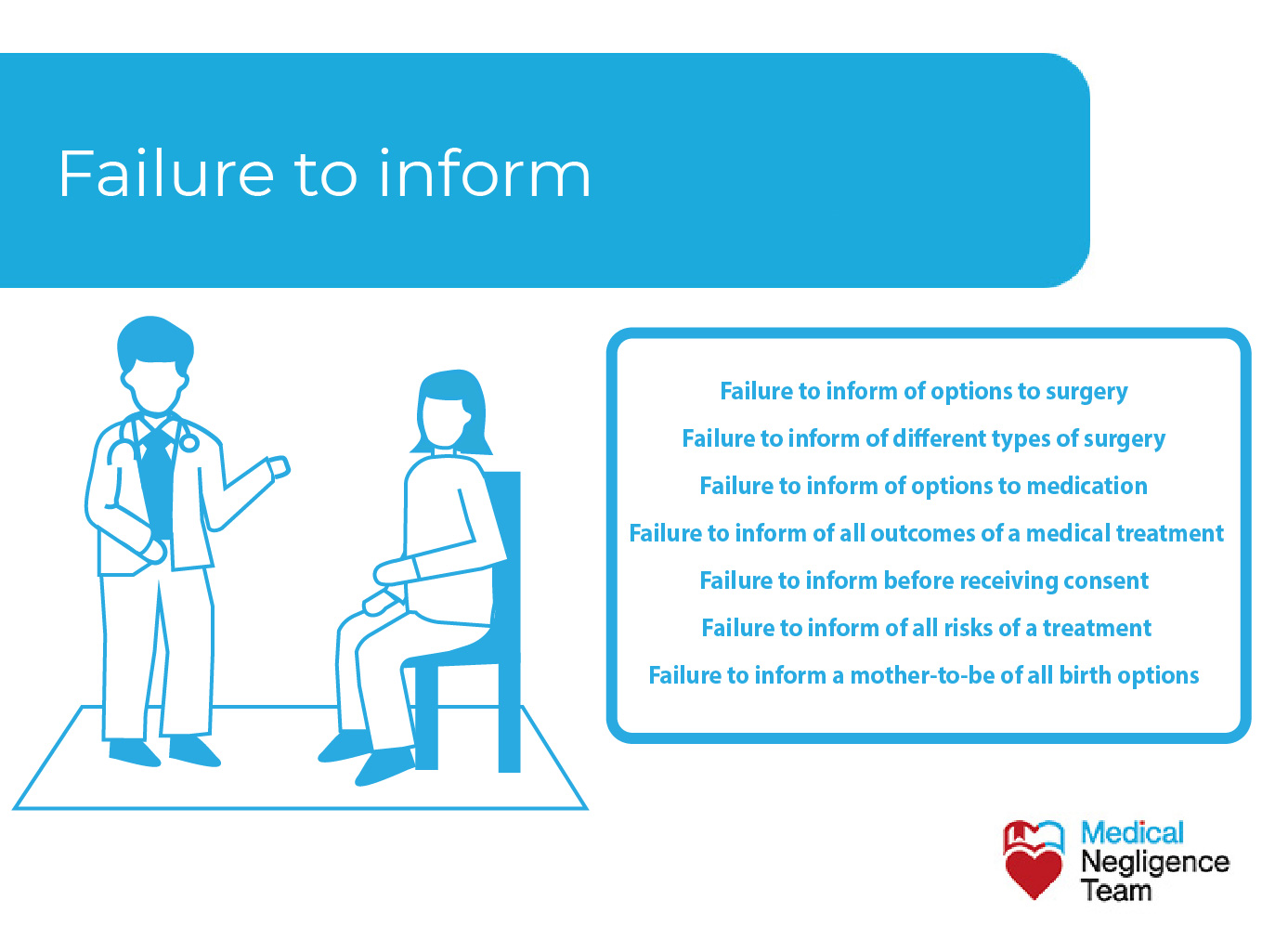
Compensation for failure to inform claims
In some cases, you can seek compensation for failure to inform claims in amounts from the low £10,000s to over £10 million.
The compensation varies depending on several factors, and failure to inform negligence claims sometimes see very high awards, such as when a patient passes away or suffers a lifetime of unnecessary suffering and chronic pain.
Compensation amounts in failure to inform claims can be:
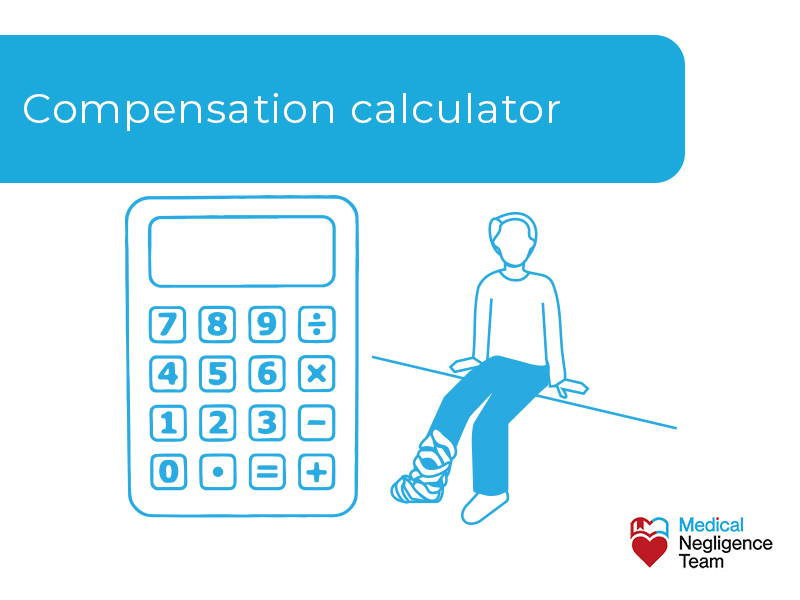
(All amounts are approximate and are only a guide to what is possible in failure to inform negligence claims. Figures can be high in some claims as you or a loved one could need long-term care and may face medical bills for life. )
You may be able to claim for these care expenses and medical costs in the future.
As in all medical negligence claims, each case is dealt with on merit and how much the patient suffers due to failure to inform complications.
A No Win No Fee medical negligence solicitor will be the one to advise you on a failure to inform claim. They will know from experience what your case may be worth and how to make a successful claim.
Your No Win No Fee medical negligence solicitor will handle your failure to inform claim for compensation and for all damages incurred.
Our Process
Our team members have a higher career win rate with a 75% success rate on NHS letters of claim, compared to an industry average of 54.5%.
Enquiry
The first step is to get in touch and tell us what went wrong. It’s free and easy. Call our 24-hour helpline: 0800 246 1122 or request a callback here.
Medical Evaluation
Once you have spoken with our team we’ll let you know how we can help. Typically the next step is to obtain your medical records for us to review.
Legal Letter
Once all your medical records have been received they will be reviewed by a medically & legally qualified member of our team. If there is evidence of medical negligence we will send a letter of claim to the negligent party outlining your medical negligence claim.
Who is eligible for compensation?
The patient who suffers from complications due to failure to inform may be eligible for compensation. They are the ones who have suffered, and the clear medical negligence could lead to extra treatment, difficulties leading an independent life and stress when dealing with medical professionals in the future.
The failure to inform could lead to years of unnecessary suffering and the patient’s early death in some cases.
If a patient passes away due to complications arising from an unnecessary procedure, the ones left behind may have a claim for medical negligence.
Loved ones in a medical negligence case are known as ‘dependents’ and can be:
When you are a victim of failure to inform negligence or have lost a loved one through failure to inform, you may have a claim for compensation.
What can you claim for when you sue for failure to inform?
You can claim compensation for any damages that occurred when you sue for failure to inform.
There are two types of compensation damages due when suing for any type of medical negligence: General damages and Special damages.
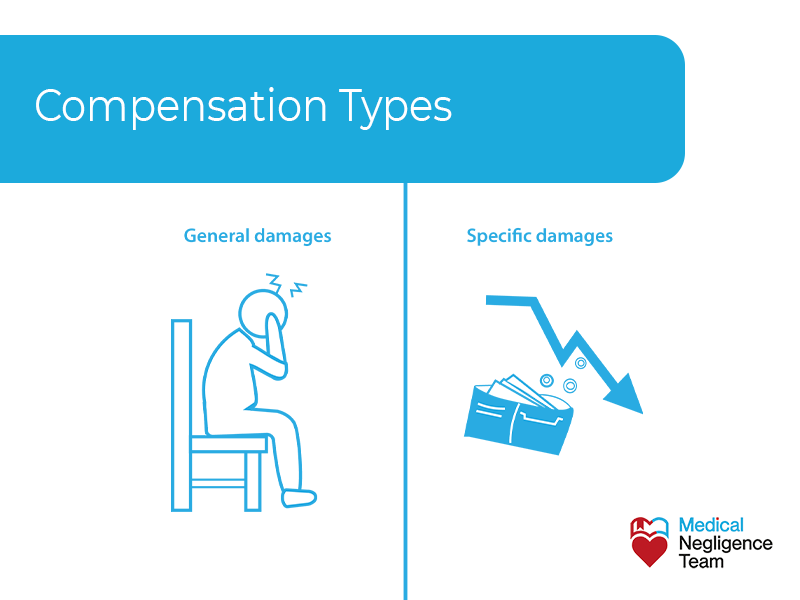
Who is responsible for failure to inform negligence?
A medical professional is responsible for any failure to inform negligence. When you bring a claim for failure to inform, you claim against the NHS Trust or private clinic that employed the medical professional responsible.
A medical professional responsible for the failure to inform could be:
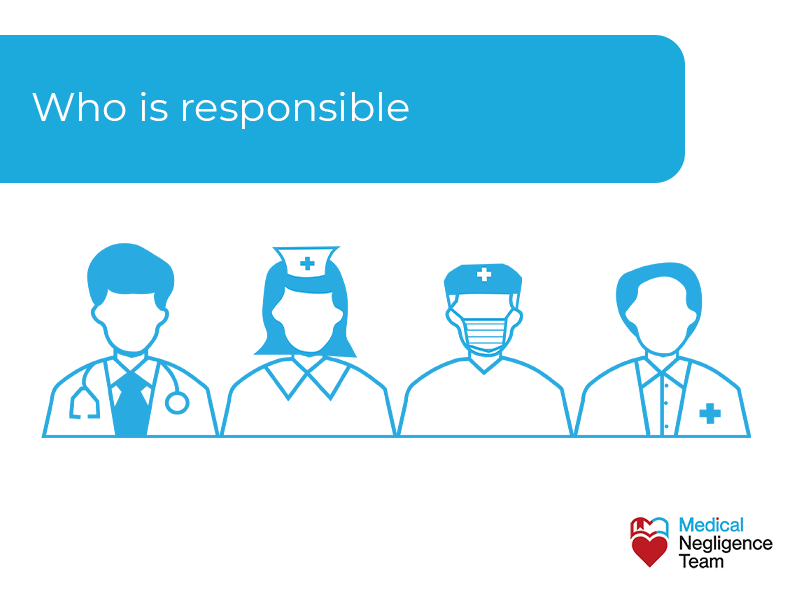
Every medical professional owes you a duty of care when dealing with your health problems. You may suffer from failure to inform if they are negligent with that duty of care and do not provide you with a professional service before an operation.
Medical negligence is treatment below an acceptable standard by a medical professional. Instead of putting the care needed into your treatment and surgery options, the doctors failed to inform you of the alternatives, which is clear medical negligence.
You may need to undergo years of treatment to correct the effects of failure to inform. By behaving less-than-professionally, the doctor risks your health, and the effects could be with you for life.
You can claim compensation for the failure to inform and get help getting your life back on track.
Potential risks of a failure to inform
The potential risks of a failure to inform a patient range from reactions to a treatment to unnecessary suffering and even death in some cases. You could suffer through years of incorrect treatment or need intensive therapy to overcome what happened due to a failure to inform.
Some potential risks a failure to inform are:
It can be very traumatic when you or a loved one suffers due to complications from a failure to inform by medical professionals.
Your No Win No Fee medical negligence solicitor can guide you through the steps of a failure to inform claim.
What are the steps involved in making a failure to inform claim?
The steps involved in making a failure to inform claim go from seeking medical advice to issuing court proceedings.
The steps are a part of any successful compensation case, and settlement can happen at any stage in the process.
Your medical negligence solicitor will do the rest when you follow the steps correctly and gather all the facts and figures.
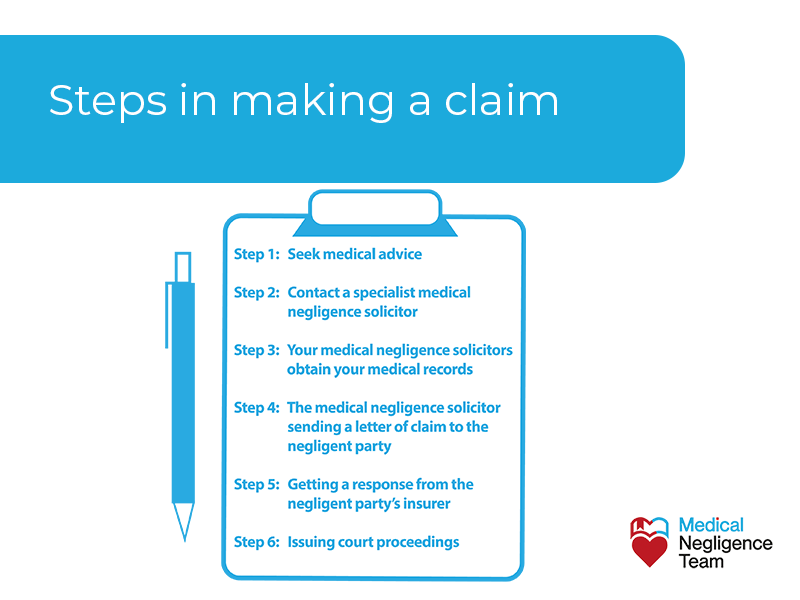
How long do I have to make a claim for a failure to inform?
You have three years to make a claim for a failure to inform. All medical negligence claims are subject to limitation periods.
For example, in England and Wales, medical negligence claims must generally be brought and court proceedings issued within three years of the injury or three years of knowledge of the facts giving rise to the failure to inform claim.
If someone has passed away, it is the date of death if the limitation period has not expired at the date of death.
Children not under a disability typically have until they reach 21 to start a failure to inform negligence claim or court proceedings.
Persons with a disability, who lack capacity, are not subject to any limitation period.
Can I make a medical negligence claim on behalf of a loved one?
Yes, you can make a medical negligence claim on behalf of a loved one. Under UK law, if an injured party cannot represent themselves, then a loved one can take the case on their behalf.
Failure to inform is a perfect example of claiming on behalf of a loved one. The negligence could take a loved one’s life or leave them unable to make a claim.
Your loved one depends wholly on you and the family for care and to fight for their rights. By making a claim on their behalf for failure to inform, you are fighting for the compensation they deserve.
A No Win No Fee medical negligence solicitor will work with you to win the compensation claim for the failure to inform negligence.
Using a No Win No Fee solicitor
Using a No Win No Fee solicitor is the only way to a successful failure to inform compensation claim. Your No Win No Fee medical negligence solicitor will not charge you for a claim you do not win.
Always have a fee agreement in place before engaging a medical negligence solicitor. If they start talking of a ‘win fee’ or a ‘success fee,’ you should walk away. The negligent party insurers should pay all fees.
The medical negligence solicitor should also operate a 100% Compensation Guarantee scheme. When you win the case, all the money awarded should go to you, not the solicitor.
You are the one who suffered due to the failure to inform, and you deserve the compensation to get your life back to normal.
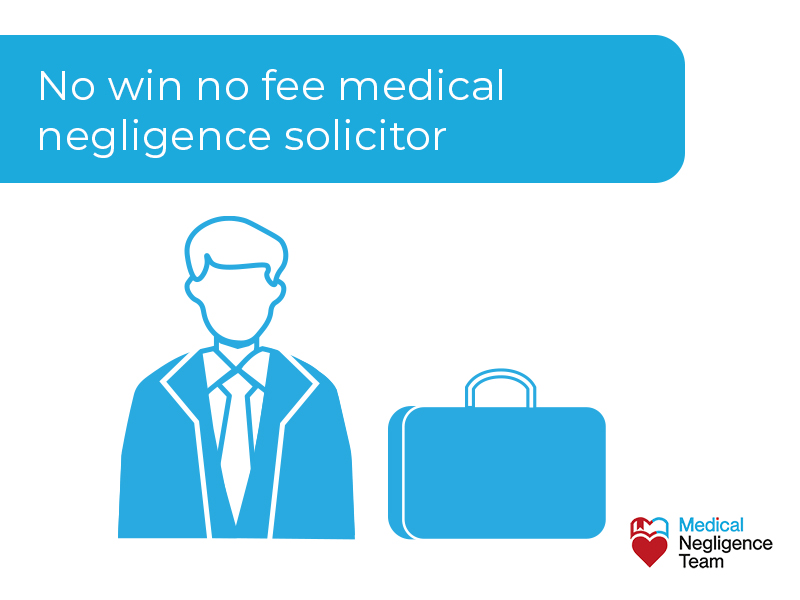
Can I make a medical negligence claim against the NHS?
Yes, you can make a medical negligence claim against the NHS. Suing the NHS for negligence is not unusual. People sue the NHS for compensation for medical negligence and receive the money they deserve for the negligent treatment.
There are between 8,000 and 10,000 successful medical negligence claims against the NHS each year—amounts in compensation claims awarded against the NHS range from £1000 to over £10 million.
The amount of compensation you receive covers minor injuries such as scarring to serious life-threatening negligence, which leaves you with long-term care needs.
We trust in and use the NHS daily and do not expect negligence. It happens, though, and the NHS has a dedicated team to handle medical negligence compensation claims, called NHS resolution.
NHS Resolution has a responsibility to treat patients who seek compensation fairly. Patients pay for the NHS through their taxes, and for that they deserve respect and the best medical treatment.
Contact The Medical Negligence Team
Contact the Medical Negligence Team today to discuss your failure to inform claim for compensation. We have both the legal and medical experts to guide you along the steps to a successful medical negligence claim for compensation.
At the Medical Negligence Team, we fight every compensation claim on a No Win No Fee basis. You will not be out of pocket for an unsuccessful claim.
We have a very high success rate and a reputation for a speedy and successful resolution to all medical negligence cases.
Our 100% Compensation Guarantee puts all the money you win into your pocket. You or your loved one suffered in a failure to inform negligence case and deserve every penny of the compensation claim.
Contact us at the Medical Negligence Team for all your medical negligence needs.


